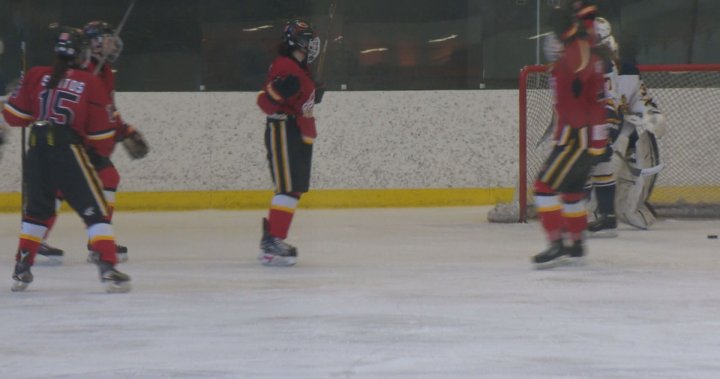The recent report from Hockey Canada highlights the need for more support for women and girls in the sport. Currently, only 20 per cent of Hockey Canada-sanctioned program enrollees are women and girls, with a total of 108,313 participants. Issues such as negative stereotypes, inconsistencies in governance and program delivery, and resource allocation were identified as barriers to greater participation. Despite these challenges, players like Elizabeth Ballinger, who has been playing for 13 years, express excitement about the growth of women’s hockey and the opportunities available to female athletes.
Ballinger shared her experiences of playing on boys’ teams where female players were often marginalized and mistreated, emphasizing the importance of creating an inclusive and supportive environment for all players. Krista Pell, from Girls Hockey Calgary, highlighted the significance of increased representation of women in hockey, such as the establishment of the Professional Women’s Hockey League and Canadian Jessica Campbell coaching for the Seattle Kraken. These developments provide aspiring female players with role models and show them that they can pursue their dreams in the sport.
In addition to increased representation, Pell pointed out the potential opportunities for female athletes in terms of scholarships and career development, both in Canada and the United States. The creation of more pathways for young female athletes to further their education while pursuing their athletic goals is crucial for the growth and advancement of women’s hockey. Hockey Canada plans to conduct public consultations to gather feedback from athletes, coaching staff, and fans on how to improve support for women and girls in the sport. The findings from these consultations are expected to be released to the public by mid-2025.
Overall, the report from Hockey Canada highlights the progress that has been made in women’s hockey while also acknowledging the need for continued support and resources to further promote the sport among women and girls. By addressing issues such as negative stereotypes, governance inconsistencies, and resource allocation, organizations like Hockey Canada aim to create a more inclusive and equitable playing field for all participants. Through increased representation, opportunities for scholarships and career development, and public consultations for feedback, efforts are being made to empower female athletes and encourage their participation and success in hockey. The ongoing commitment to supporting women and girls in hockey will undoubtedly contribute to the continued growth and evolution of the sport.













